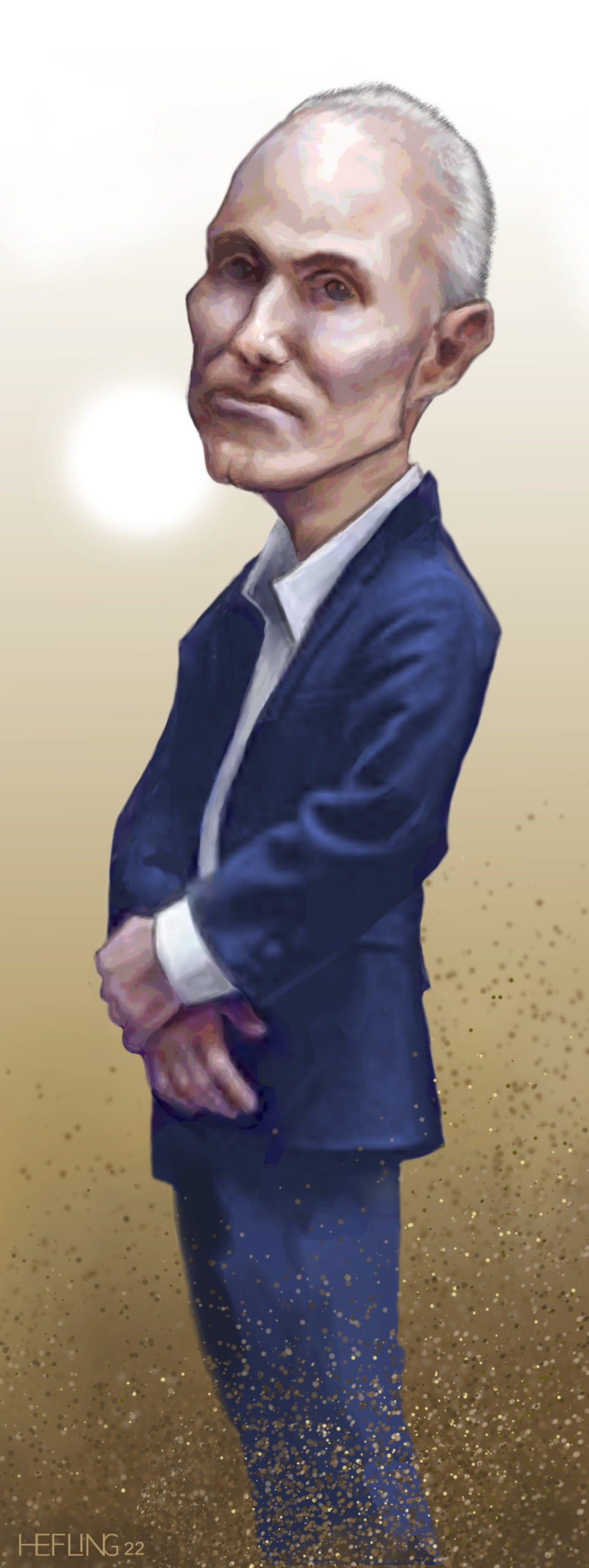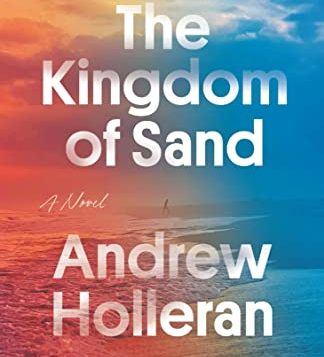OF THE GROUP of remarkable writers who made up the so-called Violet Quill in the early ’80s, Andrew Holleran is perhaps the nicest. Without either the literary panache of Edmund White or the versatile stamina of Felice Picano, he has written a number of novels that chart the progress of a certain sort of white, cis gay male world since the halcyon days of his youth, before the AIDS epidemic seemed to end the promises of gay liberation in the 1970s.
Whereas White and Picano are both charming and outgoing, Holleran has always been withdrawn, even melancholic. (The other four writers who comprised the Violet Quill are long dead, all from AIDS.) The Kingdom of Sand—a smarter reader than I might be able to explain the title—is a book without a traditional plot, and only a writer with Holleran’s skills could manage to hold his readers without the conventional twists and surprises of most novels. From the outset we are warned that this is a mediation on death and dying, in which there will be few incidents and the only surprises will be those brought on by the human body’s frailty.
 The friends seem to have met through frequenting a nearby cruising spot, although the one explicit reference to sex in the book explains why the narrator finds pornography a more satisfying outlet. They spend many evenings watching old movies, described with a relish that recalls film historian Vito Russo’s The Celluloid Closet, which revealed the hidden gay meanings in many Hollywood classics. Earl introduces the narrator to both Hollywood and operatic greats as he sinks slowly into oblivion, cared for in his final years by a vaguely sinister “handyman” who remains too opaque to be a satisfactory villain.
The friends seem to have met through frequenting a nearby cruising spot, although the one explicit reference to sex in the book explains why the narrator finds pornography a more satisfying outlet. They spend many evenings watching old movies, described with a relish that recalls film historian Vito Russo’s The Celluloid Closet, which revealed the hidden gay meanings in many Hollywood classics. Earl introduces the narrator to both Hollywood and operatic greats as he sinks slowly into oblivion, cared for in his final years by a vaguely sinister “handyman” who remains too opaque to be a satisfactory villain.
Rather than telling a story, Holleran’s great ability is to evoke emotion and empathy. As Christopher Bram wrote of his first, much acclaimed novel Dancer from the Dance: “[It is] a scrapbook of mood pieces that shouldn’t work as a novel, but it does, the moods are so perfectly rendered that they are enough.” The Kingdom of Sand has less variation in mood than Dancer, and at times it is unnecessarily repetitive, but Bram’s comment remains apposite. Holleran has not lost his ability to convey deep emotions and conjure vivid landscapes, but he paints on a small canvas, and the book flags as the same themes recur in slightly shifting form. In some ways he could be compared to a pointillist author writing at a time that demands greater ambition, novels that transcend the purely domestic minutiae of slowly decaying bodies.
Like Edmund White in his most recent book, A Previous Life, Holleran has turned to the novel to explore the dusk of aging. Unlike White, he is not ostensibly his own protagonist, although there are clearly autobiographical elements in the book. But while White delights in snobbery, satire, and self-mockery, Holleran remains consistently depressed, with his evocation of the sort of lonely old age that was assumed to doom homosexuals fifty or more years ago, when our very existence was assumed to be a crime, an illness, a sin, or at best a type of deviance.
The assumption that aging and loneliness are somehow inextricably linked is central to this book, but that link is surely less connected with one’s sexuality than The Kingdom of Sand suggests. I’m sure there are many isolated and scared homosexuals in Middle America, but Holleran’s narrator seems remarkably unaware of the extent to which social and legal attitudes have changed, despite those frequent visits to Washington. Not to have someone waiting for you at home, a theme that recurs through the book, is hardly a particular homosexual experience. Social isolation of the old is a common complaint in all wealthy societies, and I would be dismayed if a young reader assumed that their sexuality condemned them to the isolation that Holleran depicts.
The frontispiece of the book quotes Saint Benedict as telling us to “Keep death daily before your eyes,” an admonition that Holleran seems to have followed. Benedict lived to the age of 67, a remarkable age for the sixth century, but his death was seemingly far less lonely than the one Holleran foresees. The Kingdom of Sand is haunted by images of old people dying alone, undiscovered for several days.
It is a mark of how bleak this book is that the most optimistic note comes on the last page, when he writes: “One must be grateful for what one has.” I would argue that it is precisely the refusal to accept this position that has fueled most progressive movements, including what we now call the LGBT one. There were moments in reading The Kingdom of Sand that I wanted to give Andrew Holleran a good shake and tell him to leave northern Florida for somewhere less haunted by the melancholy of his past.
Dennis Altman is a professorial fellow in human security at La Trobe University in Bundoora, Australia.







